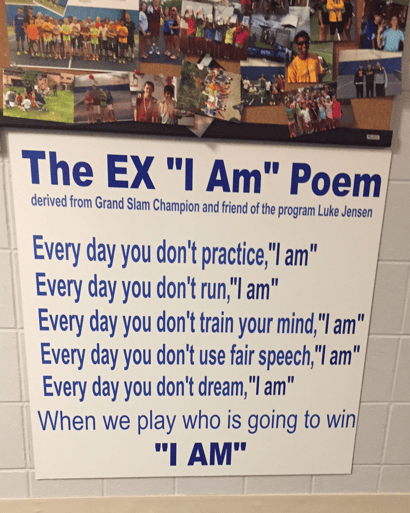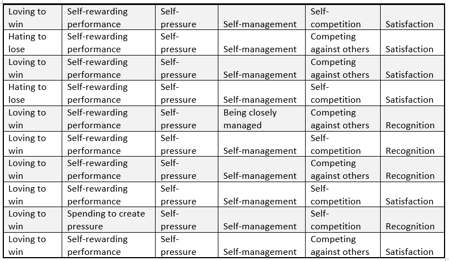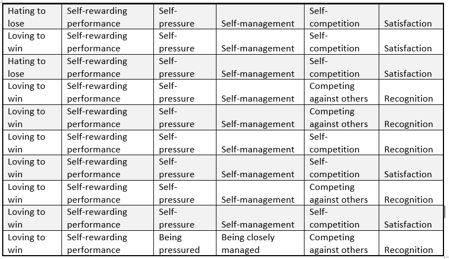Ok, let’s start here - there are no secrets! The Internet and the digital world have pretty much eliminated ignorance and secrets to success in sales... and about how to do almost anything else. All you need is a mobile device (could even be a watch) with access to the internet and you can find just about anything you want to know.
Myth Busters used to be one of my favorite shows. I searched google to find the Discovery Channel episode about lifting a car with duck tape. Here is the link (but, unfortunately, you won’t get the complete show).
With facts and strategies being so readily available, why do most salespeople (about 80%) still struggle to be successful? A lot of it has to do with beliefs and myths. What about you? Do you accept any outdated myths as facts? Since I short-changed you a little on the video, I will share a list of some other common myths:
- People only use 10% of their brains
- There is a dark side of the moon – Pink Floyd led us astray (Here you go, rockers!)
- Behavior is affected by the full moon
- Sugar makes children hyperactive
- Lightning never strikes the same place twice
THE BEST METHOD - GET TO THE ROOT OF THE PROBLEM
As many of you know, Anthony Cole Training Group has specialized in providing specialized sales growth solutions for banking, investment advisory and insurance. Primarily, those growth solutions include:
- Hiring better salespeople
- Executing an effective sales process
- Sales Management certification
During our years of developing and delivering content to hundreds of sales organizations, we have used the #1 sales assessment tool on the planet. Not only is the accuracy of the sales inventory assessment tool unbelievable, but the Sales Effectiveness and Impact Analysis has been game changer for every one of the clients in our niche:
|
“The Sales Person Skills Assessment Tool has enabled us to discover some interesting information about our sales process, current sales capabilities as well as potential opportunities for growth and improvement in sales competencies. This assessment tool has also changed how we go about hiring for our sales force.” President & CEO |
One of the most interesting segments revealed in the assessments is about personal beliefs. Each of us has personal beliefs that dictates our behaviors and thus determines our outcomes. This holds true for all areas - sales, sales management and sales leadership. Whether aware or not, we all have beliefs about what we do that impacts our opportunity for success.
5 MYTHS MOST SALESPEOPLE ACTUALLY BELIEVE
Here are the beliefs that many salespeople hold near and dear to their hearts that simply are not true:
- People buy from people they like – Now, you may have purchased something from someone that you liked, but the “liking” didn’t drive your decision. What drove your decision was your confidence and trust in the person, the product and the company behind the product.
- People make buying decisions based on price – Staying with you and your purchasing habits for a second, let’s talk automobiles. According to autobyel.com, the cheapest car available today is the Hyundai Accent SE with a MSRP $15,580.00. If you own one, then you are a rare breed. The volume of sales of this vehicle in 2016 was only .38% of all vehicles sold in the U.S. If people simply bought on lowest price, this would not be the case.
- Closing skills are the most important – This might be surprising to you, but in the last three studies I personally conducted in the banking segment, the top 33% of bankers, wealth managers and private bankers severely lack closing skills still led their teams in sales.
- The customer is always right – Actually, the customer is rarely They are more right today than they USED to be when it comes to product knowledge, availability, options and pricing as a result of information available on the Internet; but to assume they are right about everything is just SO wrong. However, this in and of itself is not the problem. The problem is this: if salespeople believe this, then they will never be gutsy enough to execute the challenger sale, the value-based selling system, the SPIN System or our Effective Selling System.
- Prospects are honest – 95% of respondents in all of our studies believe prospects are honest. That is… until we conduct our first meeting with our clients and go through the process that buyers to go through when executing their buying process. g. If a prospect was completely honest, they would tell the insurance agent who just cold-called them that they just got a renewal that they think is too high and they want some competitive bids to keep the incumbent honest. We all know that doesn’t happen!
TRAINING ALONE DOES NOT GET LASTING RESULTS
Time and again, companies spend money on sales training to introduce them to a new…
- sales language
- sales approach
- prospecting method
- time management process
- cross-selling strategy
What happens is that the company spends a lot of time, money and effort and yet, at the end of the event or training, they cannot point to any discernable difference in outcomes. Behaviors stay the same, problems that existed before are still there, effort changes for a while but soon returns to pre-training levels and salespeople still blame the economy, the company or the competition for lack of success.
Top people still are performing at the top, people in the middle of your sales bell curve are still “at leasters” and your bottom 20% are not performing any better than the bottom 20% you had the year before. Why? Because the root problems associated with beliefs were never addressed.
I grew up on a farm. I know about planting things and making them grow, and if it’s a fruit tree or bush (blueberries), I know that there is a time to harvest. What I also know is that you can buy the best plants and trees in the world, but if you don’t take care of the root system with good soil, fertilizer and water, they will not produce.
GIVE ME A CALL - I WILL HELP
For more about growing blueberries, peaches and salespeople, call me! This is your call to action to get more productivity out of yourself or your sales team, so call me NOW at 513.791.3458.
Additional Resources
- # 1 Sales Assessment in the world
- Identify Your Systems and Processes – The Sales Effectiveness and Impact Analysis Sample (SEIA)
- How do my salespeople compare to industry standards – Get 3 people on your team (the best three that do the right things, have the right fit and blow out their numbers consistently) to take the sales skills inventory assessment and compare. Be prepared to take a call from us, discuss the results and answer the question: Do you want our help?








